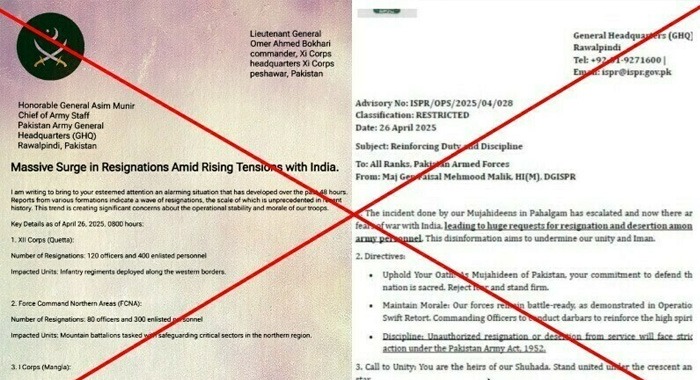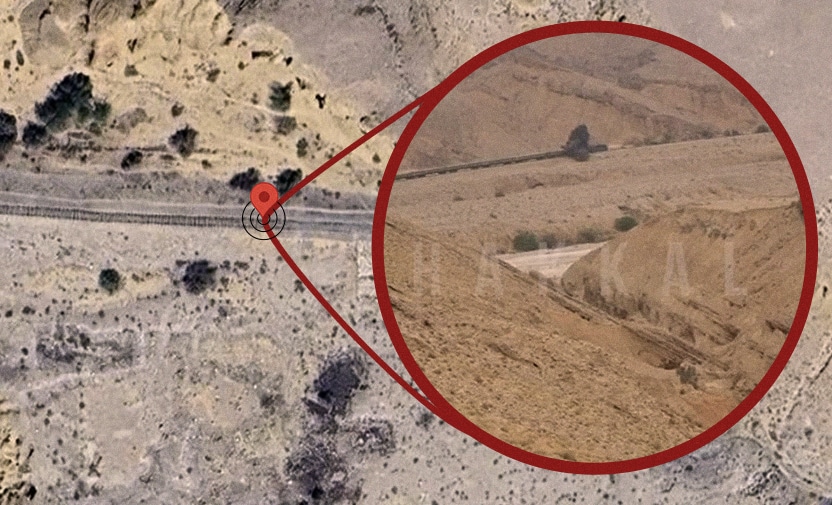In the wake of the tragic Pahalgam attack on April 22, 2025, which resulted in the deaths of 26 individuals, including 25 Indian nationals and one Nepali tourist, social media platforms were flooded with claims suggesting that the Pakistan Army was experiencing a wave of resignations. These assertions, alleging that over 1,200 officers and soldiers had tendered their resignations, were accompanied by purported official letters from high-ranking military officials. However, a detailed fact-checking investigation has revealed these claims to be entirely false and part of a coordinated misinformation campaign.
The Fabricated Documents
The viral posts featured images of letters allegedly sent to the Chief of Army Staff, General Asim Munir, from various corps commanders, detailing the resignation of personnel due to declining morale and the pressures of escalating tensions with India. One such letter purportedly from the Peshawar Corps Commander claimed that 250 officers and 1,200 soldiers had resigned, citing reasons such as family pressure and fatigue. Another letter, allegedly from the Mangla Corps, echoed similar sentiments.
These documents quickly gained traction on platforms like X (formerly Twitter), garnering thousands of views and shares. Notably, the posts were shared by accounts with a history of disseminating anti-Pakistan narratives.
Fact-Checking Findings
Upon thorough examination, several inconsistencies and errors were identified in the purported letters:
Formatting Errors: The letters contained numerous typographical mistakes, such as improper capitalisation and inconsistent fonts, which are uncharacteristic of official military correspondence.
Lack of Official Markings: The documents lacked standard military letterhead and official stamps, which are typically present on genuine military communications.
Inaccurate Contact Information: The provided email addresses and phone numbers were either non-functional or did not correspond to official military channels.
AI-Generated Content: Analysis using AI detection tools indicated that portions of the letters were likely generated using artificial intelligence, further casting doubt on their authenticity.
Military officials have categorically denied the existence of such resignation letters, labelling them as baseless and fabricated. A senior officer from the Peshawar Corps confirmed to Dawn News that no such resignations had occurred.
Context of the Misinformation
The timing of these fabricated claims coincided with heightened tensions between Pakistan and India following the Pahalgam attack. India had initially blamed Pakistan-based militants for the incident, leading to diplomatic strains. In response, Pakistan’s National Security Committee took several measures, including limiting the Indian diplomatic staff and suspending bilateral agreements. The dissemination of false resignation claims appears to be part of a broader strategy to undermine Pakistan’s military establishment and escalate tensions.
Conclusion
The recent wave of misinformation regarding mass resignations within the Pakistan Army has been thoroughly debunked. These fabricated claims serve as a reminder of the importance of critical media literacy and the need to verify information before accepting it as true. As both nations navigate this period of heightened tension, it is crucial to rely on credible sources and official statements to understand the evolving situation.





